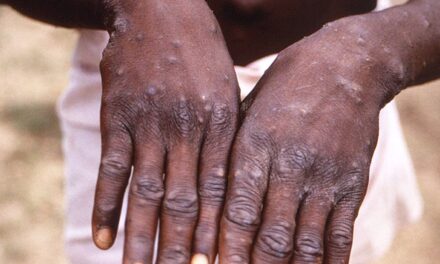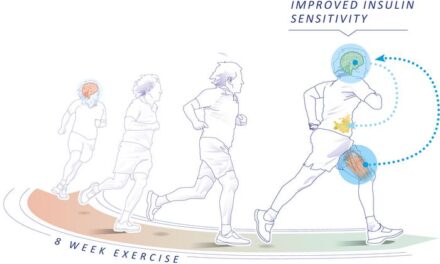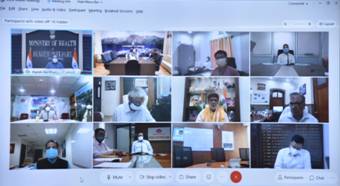Misrah, an undocumented migrant worker, and her family left their home in Ethiopia hoping for a better life. Instead, her three children are now dead, drowned during a perilous sea crossing across the Gulf of Aden, when the overloaded boat smuggling them into the country capsized.
“I have lost everything,” says Misrah, as she struggles to recount the most traumatic of events, witnessing the deaths of her three children. The 27-year-old Ethiopian woman, her husband and children – Aziza, five; Rachar, three; and Ikram, two – and at least 55 other migrants and refugees were aboard a boat controlled by smugglers crossing the Gulf of Aden from Yemen to the Horn of Africa via Djibouti, on 12 April.
‘They were too young; the sea was too rough’
Overcrowded and travelling in the dead of night, the vessel capsized under the weight of its passengers. Sixteen children, including Misrah’s, and at least 44 migrants and refugees drowned, trapped beneath the sunken vessel. She and her husband Abdul Basit were two of just 14 to survive.
Speaking through a translator, Misrah musters the strength and courage to describe the moments leading up to the tragedy. “As we approached the Djiboutian shore, the boat began to fall apart,” she recalls. “My children were sleeping when the boat turned over. I was holding Ikram in my arms. I knew I could swim. That is how I survived. Unfortunately, it was not the case for my children. They were too young; the sea was too rough.”
Alone, Misrah swam to shore, making her way on foot and with the help of a passing motorist to the town of Obock, Djibouti, where she met staff from the International Organization for Migration’s (IOM) Migrant Response Centre. “I was given a phone to call my mother and I feel better. Later they also helped locate my husband, who, thankfully, made it back to Ethiopia,” Misrah says.
“The staff members are taking care of me, trying to reassure me. I would like to see my mother; she is the only one who can comfort me right now.”
The plight of undocumented migrants
In 2012, Misrah left her home in Derdawah, Ethiopia, to find work. “I wanted to take care of my family, my mother and my siblings,” she explains. “I managed to travel to Djibouti where I worked as a maid. Thanks to the money I earned I was able to afford to travel to Yemen by boat.”
Thousands of migrants from Ethiopia make the same journey through Djibouti to Yemen each year hoping to reach Saudi Arabia, where there are better work opportunities and higher incomes than back home. Others, like Misrah, intend to remain in Yemen where, prior to the conflict and the current pandemic, there were opportunities for migrant workers. Historically, there has always been movement back and forth between Yemen and the Horn of Africa.
Misrah slowly built a new life in the city of Aden, finding work as a cleaner. In 2014 she married Abdul Basit, and they started a family. “I liked my life in Yemen,” Misrah says. When Misrah’s mother fell ill back in Ethiopia, she felt compelled to return and care for her. Her husband was concerned for Misrah’s safety, reluctant for her to travel alone; ultimately, they decided to travel together as a family.
Like most undocumented migrants in the region, they had no formal or official stay documents in Yemen or papers needed to return to Ethiopia, and were forced to pay smugglers USD 400 to travel from Yemen to Djibouti by boat, the first leg on the journey to Ethiopia. Often, this trip can cost a lot more.
IOM staff in Djibouti are providing Misrah with trauma counselling and support, and working with IOM in Ethiopia to help her return home to be reunited with her husband and mother.
“Before I leave Djibouti, I want to say goodbye to my children. I would like to have the opportunity to mourn them at the graveside before I return to Ethiopia,” she says.
She will continue to receive counselling from IOM Ethiopia and, together with Abdul Basit, support to reintegrate back into their community and start to rebuild their lives. But Misrah says the heartbreaking loss of her three children, Aziza, Rachar and Ikram, will never leave. “I want migrants in Yemen to understand that the journey is too risky,” she says. “I am alive, but I feel like I am dead.”
Life-threatening journeys
- In the past year, over 11,000 similar journeys were undertaken on unseaworthy vessels by migrants from the Horn of Africa desperate to return home from Yemen. Some, like Misrah, return for family emergencies, while others had tried and failed to reach Saudi Arabia. COVID-19 has led to movement restrictions across the Horn of Africa and in Yemen, including tightened security at Yemen’s border with KSA. IOM estimates that over 32,000 migrants are stranded across Yemen.
- Despite stories like Misrah’s and the obvious life-threatening dangers of the sea journey, the number of migrants arriving in Djibouti by boat continues to increase. In March, over 2,343 arrived from Yemen by boat, compared to 1,900 in February.
- Tragically, more than 100 migrants have now died in similar incidents off Djibouti’s coast over the last six months. Just last month, 80 migrants traveling from Djibouti to Yemen were thrown off a boat by smugglers, and several died. At the end of last year, at least 50 migrants died in similar tragedies.
- IOM is working with governments and other partners to respond to the needs of these migrants, reduce irregular migration, and protect migrants from exploitation by smugglers and traffickers.
















